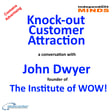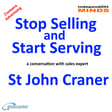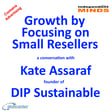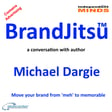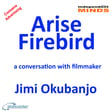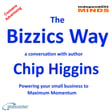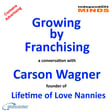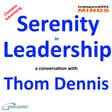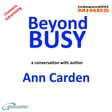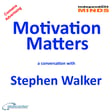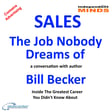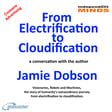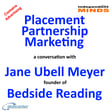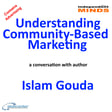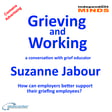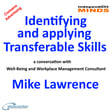
Understanding Succession Planning – a conversation with Darryl Bates-Brownsword
At the time of recording Darryl Bates-Brownsword was the managing partner at Succession Plus UK. He is now Chief Growth Officer at Fabric, a consultancy that specialises in helping founders maximising the value of their business on exit.
In this episode of the Abeceder podcast The Independent Minds, Darryl explains to host Michael Millward that we cannot expect employees to spend their entire career in our business. People leave work for all sorts of reasons.
Darryl describes how important it is for every organisation to have a succession plan, and that an organisation without a succession plan will be too reliant on the founder or senior manager.
Darryl and Michael discuss the different elements of a successful succession plan and the management techniques that managers need to implement in order to be able to create a viable succession plan.
More information about Darryl Bates-Brownsword and Michael Millward is available at abeceder.
Audience Offers
The Independent Minds is made on Zencastr, because as the all-in-one podcasting platform, Zencastr really does make creating content so easy.
If you would like to try podcasting using Zencastr visit zencastr.com/pricing and use our offer code ABECEDER.
Travel
With discounted membership of the Ultimate Travel Club, you can travel anywhere else at trade prices on flights, hotels, trains, and many more travel related purchases.
Fit For Work Look after your health and you will be fit for work.
No point in being in a great job if you are in poor health. That is why we recommend The Annual Health Test from York Test; a 39-health marker Annual Health Test conducted by an experienced phlebotomist with hospital standard tests carried out in a UKAS-accredited and CQC-compliant laboratory.
A secure Personal Wellness Hub provides easy-to-understand results and lifestyle guidance
Visit York Test and use this discount code MIND25.
Visit Three for information about business and personal telecom solutions from Three, and the special offers available when you quote my referral code WPFNUQHU.
Being a Guest
We recommend the podcasting guest training programmes available from Work Place Learning Centre.
We use Matchmaker.fm to connect with potential guests If you are a podcaster looking for interesting guests or if you have something interesting to say Matchmaker.fm is where great guests and great hosts are matched and great podcasts are hatched. Use our offer code MILW10 for a discount on membership.
We appreciate every like, download, and subscriber.
Thank you for listening.
